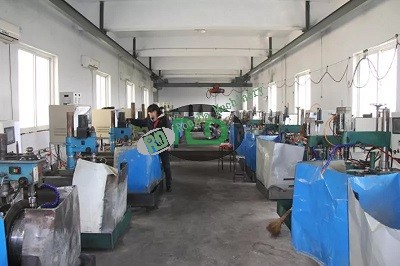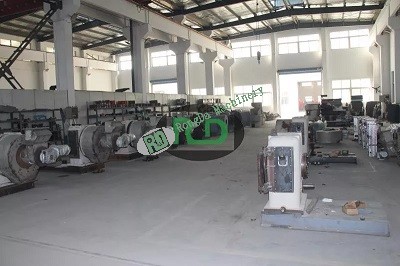Welcome to Rongda Machinery Co., Ltd
Toggle Navigation

Hey there! If you’re diving into the world of wood pellets, you’re probably noticing how they’re becoming a go-to for clean energy. Whether it’s heating homes or powering plants, these little compressed bits of wood are making waves. And when it comes to getting the gear to make them, China’s got a lot to offer. Let’s walk through why wood pellets are hot right now, what makes Chinese suppliers stand out, and how to pick the right one for your needs—without getting bogged down in jargon or sales pitches.
Wood pellets are like the unsung heroes of renewable energy. They’re made from compressed sawdust or wood scraps, perfect for burning cleanly in stoves or power plants. Unlike coal or oil, they’re kinder to the planet, cutting down on carbon emissions and using waste that might otherwise just sit there. The push for greener energy has folks worldwide clamoring for pellets, and that’s where production lines come in—those are the machines that turn raw wood into neat, uniform pellets ready for market.
China’s a major player here, and it’s not hard to see why. Their manufacturing know-how, paired with a knack for building efficient, high-capacity production lines, makes them a top choice for businesses looking to jump into the pellet game or scale up fast.
A few things are fueling the rise of wood pellets. For starters, the world’s waking up to climate change, and governments are throwing their weight behind renewables. In China, policies like subsidies for green tech are spurring investment in pellet production, making it easier for companies to get started. Plus, China’s got a prime spot for exports, with trade networks that ship pellets everywhere from Europe to North America.
On the tech side, innovations in pellet-making equipment are a game-changer. Think faster mills, smarter presses, and better quality control that ensure every pellet meets strict standards for moisture and durability. These advancements mean you can produce more, waste less, and keep costs down—music to any business owner’s ears.

So, what exactly is a wood pellet production line? Picture a factory setup that takes raw materials—think sawdust or wood chips—and turns them into those tidy little pellets. It’s a multi-step process, but here’s the gist:
Raw Material Prep: You start by grinding and drying the wood to get it just right. Consistency here is key to avoid wonky pellets.
Processing Equipment: This is where the magic happens. Mills and presses shape the material into pellets, squeezing it under high pressure to form those dense, burnable nuggets.
Quality Control: Before anything ships out, pellets are tested for things like density and moisture content to ensure they meet industry standards.
A top-notch production line isn’t just about churning out pellets—it’s about doing it efficiently, keeping costs low, and scaling up if demand spikes. That’s why picking the right setup matters so much.
China’s got a few aces up its sleeve when it comes to wood pellet production lines. First off, they’re often more budget-friendly than suppliers elsewhere, without skimping on quality. Their equipment is built to handle everything from small startups to massive operations, so you can grow without swapping out your whole setup. Plus, Chinese manufacturers are pros at navigating global trade, meaning they can get your gear to you no matter where you’re based, with solid support to keep things running smoothly.
Take a company like liyang Rongda, for example. They’ve been in the game for years, offering everything from compact pellet mills to full-on production lines tailored to your needs. Or look at GEMCO Energy—they’re known for flexible solutions and great customer service, helping clients fine-tune their setups. Then there’s Kingoro, which specializes in high-output systems for big players who need to pump out pellets by the ton.
Choosing a supplier can feel overwhelming, but it doesn’t have to be. Here’s what to keep in mind:
Reputation Matters: Look for companies with a solid track record. Check reviews, ask for references, or even see if they’ve got case studies showing how their equipment helped someone like you.
Customization is Key: Every business is different. Maybe you need a compact line for a small operation or a beast of a system for high-volume production. Good suppliers will work with you to tweak the setup.
Support After the Sale: Things break, questions come up. Pick a supplier with responsive customer service and solid warranties so you’re not left hanging.
Certifications: Make sure their equipment meets international standards like ISO or CE. This ensures quality and keeps you compliant with regulations.
One tip? Don’t just go for the cheapest option. A bargain upfront might mean headaches later if the equipment’s shoddy or the supplier’s hard to reach. Instead, weigh things like tech quality, production capacity, and how well they communicate. Pro tip: ask about lead times upfront to avoid delays that could stall your plans.
Let’s talk about a real example. A small European biomass company partnered with a Chinese supplier to set up a mid-sized pellet line. They needed something affordable but reliable to meet growing demand. The supplier customized a line with automated quality control, cutting production time by 20% and boosting pellet consistency. Within a year, the company doubled its output and broke into new markets, all thanks to a setup that fit their budget and goals.
Wood pellets are here to stay, and China’s suppliers are at the heart of this growing industry. With their mix of affordable, high-quality production lines and global reach, they’re helping businesses everywhere meet the demand for clean energy. By choosing a supplier with the right tech, support, and reputation, you’re setting yourself up for success in a market that’s only getting bigger.
Got questions? Here’s a quick rundown:
Why pick a Chinese supplier? They offer great value, reliable tech, and global shipping know-how.
How do I know I’m getting quality pellets? Go for suppliers with certifications and robust testing processes.
What should I check before buying? Look at their reputation, customization options, and how they handle support.
Can they ship internationally? Absolutely—most are pros at logistics and export.
Need a custom setup? Many suppliers are happy to tailor their lines to fit your specific needs.
With a little research and the right partner, you’ll be ready to make waves in the wood pellet world. Happy hunting!